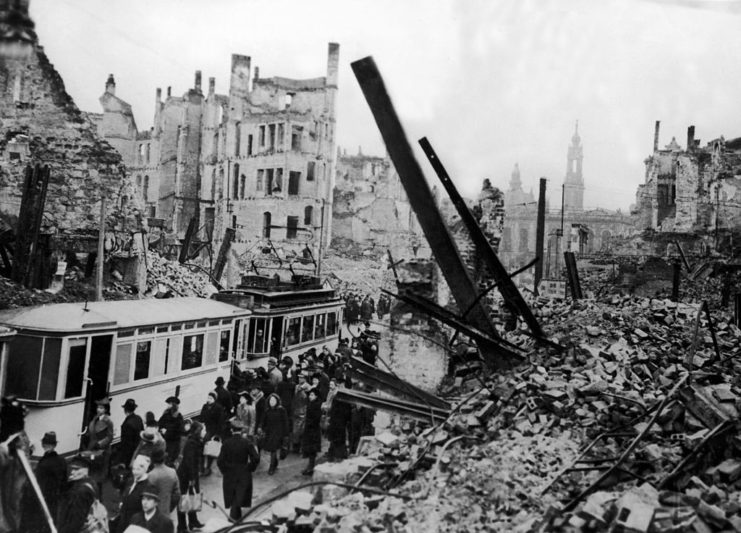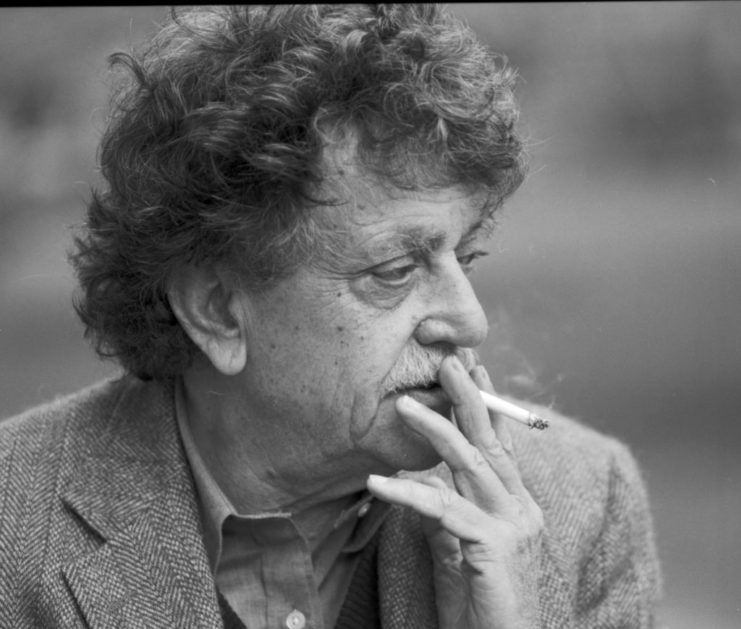Kurt Vonnegut’s WWII Experience That Shaped His Iconic Anti-War Writing
Kurt Vonnegut is one of the most beloved and influential authors of the 20th century. While he was always witty and sharp, his horrible experiences during World War II helped shape the kind of writer he would become. Here’s how his WWII experience shaped his future work.
Not doing well in school cost him

Vonnegut was raised in relative privilege. His father and paternal grandfather were prominent architects in Indianapolis. The Vonnegut family, though, were hurt by prohibition and the depression and struggled financially. Despite their hardships, Kurt was a very bright student and was able to enroll at Ivy League school, Cornell University.
The future author’s incisive wit was clear early on and he wrote for the school paper. Interestingly, one of his articles was about pacifism, something Vonnegut strongly supported. That same column, though, got him in trouble after he penned a satirical article. That article and his poor grades got him thrown out of ROTC, which protected him for conscription. After being bounced from ROTC, Vonnegut enlisted in the Army rather than being drafted.
Early days in the Army and tragedy
Upon entering the Army, Vonnegut did his basic training at Fort Bragg. He initially entered the Army Specialized Training Program and learned how to fire and maintain howitzers. The program was canceled, however, as the Army needed more men overseas. Vonnegut was placed in an infantry battalion operating out of Indiana.
The future author’s new base was so close to home that he slept there on weekends. On one of these weekends, Vonnegut found his mother, Edith, dead from an overdose on sleeping pills. Three months after his mom died, he was sent off to Europe.
Dresden

In December of 1944, Vonnegut fought in the Battle of the Bulge. During the engagement, he was captured by the German Army and taken to the city of Dresden. It was not long after that the Allied forces would begin a bombing campaign on the German city. The future author survived the shelling by hiding in an underground meat locker.
He would say of the times ahead:
“Every day we walked into the city and dug into basements and shelters to get the corpses out, as a sanitary measure. When we went into them, a typical shelter, an ordinary basement usually, looked like a streetcar full of people who’d simultaneously had heart failure. Just people sitting there in their chairs, all dead. A fire storm is an amazing thing. It doesn’t occur in nature. It’s fed by the tornadoes that occur in the midst of it and there isn’t a damned thing to breathe. We brought the dead out. They were loaded on wagons and taken to parks, large open areas in the city which weren’t filled with rubble. The Germans got funeral pyres going, burning the bodies to keep them from stinking and from spreading disease. 130,000 corpses were hidden underground. It was a terribly elaborate Easter egg hunt. We went to work through cordons of German soldiers. Civilians didn’t get to see what we were up to. After a few days the city began to smell, and a new technique was invented. Necessity is the mother of invention. We would bust into the shelter, gather up valuables from people’s laps without attempting identification, and turn the valuables over to guards. Then soldiers would come with a flame thrower and stand in the door and cremate the people inside. Get the gold and jewelry out and then burn everybody inside.”
The end of the war
It wasn’t long after the bombing that the Soviets took control of Dresden. Vonnegut and the other captives were abandoned by their former captives. He soon ended up at a prisoner-of-war repatriation camp in Le Havre, France. Upon returning to the United States, Vonnegut worked out of Fort Riley, Kansas, typing discharge papers. He was also awarded the Purple Heart for his war experiences. In true Vonnegut fashion, he said of the honor, “I myself was awarded my country’s second-lowest decoration, a Purple Heart for frost-bite.”
Legacy

Vonnegut’s experience certainly had an influence on his future writings. He struggled as a writer for many years following the war, but in 1969, Slaughterhouse-Five was released. The book’s protagonist, Billy Pilgrim, is the same age as the writer and a survivor of the Dresden bombings. The book vaulted him into literary stardom and made Vonnegut a household name.
The post Kurt Vonnegut’s WWII Experience That Shaped His Iconic Anti-War Writing appeared first on warhistoryonline.
Post a Comment
0 Comments